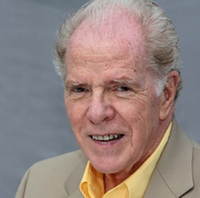"Roscoe Owens Conway presided at Albany Democratic Party headquarters, on the eleventh floor of the State Bank building, the main stop for Democrats on the way to heaven." Thus begins Kennedy's first novel in five years, the seventh installment in his Albany cycle, which includes the Pulitzer Prize–winning Ironweed. He continues to display the insider's confident mastery of fact, the sharp-edged irony that contrasts appearance and reality and the vision of the outcomes to which his characters are fated. Roscoe is fixer for Albany, N.Y., and on V-J Day, 1945, the Democratic machine is under threat. The external enemy is New York's Republican governor, gathering evidence of the widespread corruption—gambling, prostitution, violence—that hallmarks Democratic leader Patsy McCall's rule. The mysterious suicide of Elisha Fitzgibbon, the machine's moneyman, sets the events in motion. Internally, the machine is strife ridden: Roscoe must patch up the hostility between McCall and his brother over a cockfight; he must deal with the conflict between police lieutenant and McCall gunsel Jeremiah "Mac" McEvoy and Roscoe's brother, O.B., the chief of police; and he must secure the mayoral re-election of Alex, Elisha's son. Meanwhile, Roscoe seems near a lifelong goal: marrying Veronica, Elisha's widow. As in all of Kennedy's Albany novels, the town is rendered with a hallucinatory, three-dimensional density. The seams of the past—from politics to business to crime—are split open, but Roscoe's job is to keep Albany's secret history secret. A good man at heart, he is corrupted by his means (blackmail, lies and faked testimony) until his dearest goals are thwarted. This is an engrossing, comic vision of the dark side of politics as the "art of the possible." Readers who were disappointed by the thinness of The Flaming Corsage, the Albany novel that preceded this one, will rejoice at the arrival of the full-blooded Roscoe. 10-city author tour. (Jan. 14)


